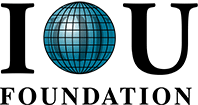Establishing Masters Equivalency
The Intercultural Open University Foundation PhD Admissions Committee does not normally admit applicants who do not hold a Masters degree. To be admitted without a Masters degree, the applicant’s task is to convince the Admissions Committee that the applicant has, essentially, the equivalent of a Masters degree in the individual’s proposed PhD field of study, or a closely related field. To accomplish this task, the applicant needs to convince the Committee that he or she possess (1) a strong experiential and theoretical background in the proposed PhD field, and (2) that sufficient information is provided about the proposed field of study to assure the Committee that the applicant can design a Ph.D. program and carry it out with the assistance of the learner’s PhD advisors.
The Admissions Committee makes its judgment about the applicant’s admissibility to the PhD program by carefully considering (1) the written application narrative, especially the part which discusses proposed PhD study plans; (2) the Masters Equivalency statement prepared by the applicant and submitted as part of the PhD application; (3) college and university transcripts or diplomas covering prior study; (4) the applicant’s recommendation letters, with special attention given to commentary regarding the applicant’s preparation and readiness for PhD study. Copies of all supporting and supplementary materials provided by the applicant are shared with the Admissions Committee; and (5) Successful completion of Masters Competency Examination (fees may apply).
The Committee requests that the following information be provided in applicant statements regarding Masters Equivalency:
PRIOR LEARNING EVALUATION
FORMAT
Make a separate section of the application entitled “Masters Equivalency.”
LEARNING EXPERIENCES
Describe learning experiences beyond the B.A./B.S. degree level that relate to the proposed field of Ph.D. study. Document learning experiences; official transcripts or diplomas should be forwarded separately.
EXPERIENTIAL LEARNING
An applicant’s experiences, and written reflections regarding them in the Masters Equivalency statement, provide information about accomplishments and experiential learning. It is appropriate to send photocopies of certificates and/or letters from instructors involved in experiential learning, as well as printed descriptions of the program.
INDEPENDENT LEARNING EXPERIENCES
Describe subjects studied independently, include the titles of books read, participation in workshops, and identify experts who may have discussed independent learning. It is appropriate to include a copy of any papers written to verify independent learning.
WORK EXPERIENCE
Applicants discuss work experience in sections other sections of the admissions narrative, but this section of the Masters equivalency statement includes the additional specifics of how work has prepared applicants to undertake proposed Ph.D. study. Research experience, in particular, is important to note.
INSTITUTION BUILDING
Applicants who have been a successful and effective innovator in some field should document this achievement. For example, some have started a program or developed an organization. Others have been in the forefront of new developments in various fields. Describe and document leadership activities and accomplishments.
PUBLICATIONS
Applicants who have publications may demonstrate field proficiency at the Masters degree level. Include relevant information (publisher, date, and place) about books, articles, videos or other multimedia, in the Masters Equivalency statement.
Applicants are encouraged to provide any other information the Committee might find valuable in assessing potential for PhD study. The Masters Equivalency is judged on a case-by-case basis, with particular attention given to B.A./B.S. degree study, research experience, and scholarly potential.
